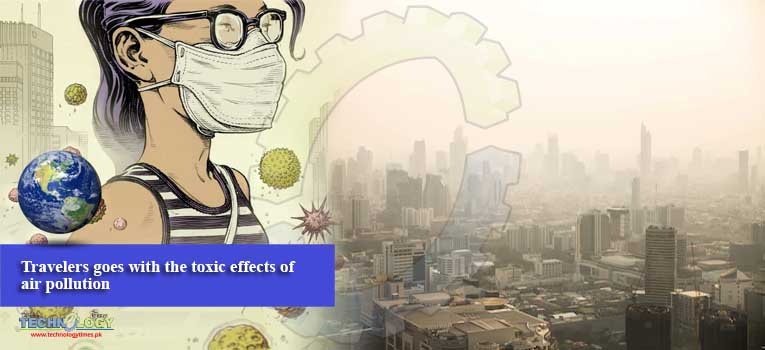Researchers at NYU School of Medicine analyze air pollution-related coughing and breathing difficulties, and recovery times upon returning home, in healthy, young adults traveling internationally.
 “We had several reports that tourists were feeling sick when visiting polluted cities, so it became important for us to understand what was really happening to their health,” says Terry Gordon, PhD professor at NYU Langone Health.
“We had several reports that tourists were feeling sick when visiting polluted cities, so it became important for us to understand what was really happening to their health,” says Terry Gordon, PhD professor at NYU Langone Health.
Researchers analyzed six measurements of lung and heart health in 34 men and women traveling abroad for at least a week. Most were visiting family in cities with consistently high levels of air pollution, including Ahmedabad and New Delhi, India; Rawalpindi, Pakistan; and Xian, China.
Specifically, the study found that being in a polluted city reduced measures of lung function by an average of 6 percent and by as much as 20 percent in some people.
People who visited the highly polluted cities reported as many as five symptoms, while those who visited lower pollution cities had fewer or none.
Two patients sought medical attention because of their symptoms. The pollution levels of the cities studied did not make a significant difference in the blood pressure of visitors, researchers say.
The researchers used international standards to categorize highly polluted cities as those having more than 100 micrograms per cubic meter of particulate matter (PM), or air pollution dust.
Moderate pollution is anything between 35 and 100 micrograms per cubic meter of PM, and low pollutions levels are anything less than that.
“What travelers should know is that the potential effects of air pollution on their health are real and that they should take any necessary precautions they can,” says M.J. Ruzmyn Vilcassim, PhD, a postdoctoral fellow in the Department of Environmental Medicine.
Gordon suggests that those visiting highly polluted cities should consider wearing masks or consult a doctor prior to travel if they have preexisting respiratory or cardiac health difficulties, and to consider avoiding travel during certain months.
Although participants gradually returned to normal health, study investigators say there needs to be more follow-up research to know if there were long-term effects, or if longer stays would influence the pollution impact.
Next, researchers plan to study international travelers who are more susceptible to the effects of air pollution, such as the elderly and people with asthma or heart conditions.